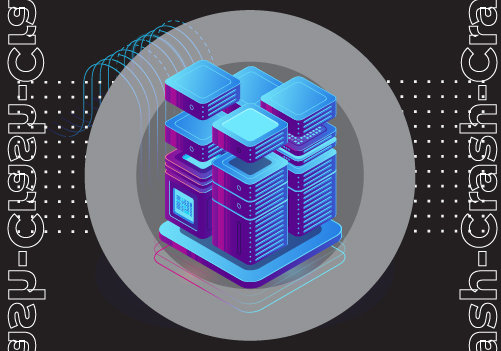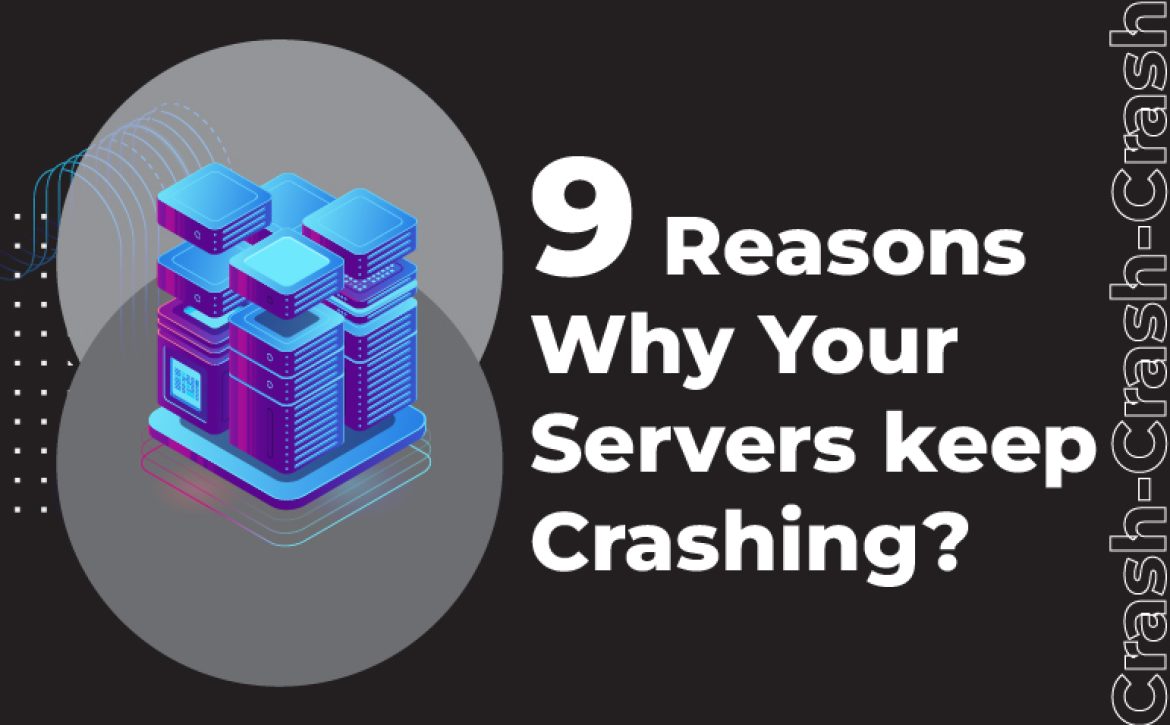Why Do My Servers Keep Crashing?

Why Do My Servers Keep Crashing?
An organization’s worst fear is to have a server failure where essential data may be lost forever leaving your organization unable to function properly.
According to research, server failure rates rise noticeably as they age. The failure rate for a server within its first year is 5%, compared to a four-year-old server’s yearly failure frequency of 11%. Understanding server failure rates is helpful as it enables a more effective risk management as well as long-term planning for server administration and maintenance expenses.
Dealing with a server crash is never enjoyable. Users may encounter significant disruptions if a large company’s server collapses, resulting in significant financial loss. If your host’s server crashes and you are an individual with a single website, you are at the mercy of the host leaving you to pace away until the problem is fixed.
A server crashing is bound to happen at some point time so it’s a good thing to note what exactly a server crash is and why it happens.
What is a Server Crash?
A server crash is a catastrophic failure of a server that can affect the entire operation of a business as well as cause a severe financial loss. Server crashes usually occur when a server goes offline, preventing it from performing its tasks. There can be issues with the server’s numerous built-in services once it crashes. Additionally, the impact will be more significant, and the repercussions will be more severe because the server serves many customers.
- Video Website: A significant accessibility issue within a video website makes it impossible to watch any online videos. It would be a catastrophe if the server’s data was lost and many writers’ original animations and movies could not be recovered.
- Financial system: A rock-solid server is necessary for a financial plan that processes millions of transactions every second. Since everyone’s capital exchanges were impacted, the loss is incalculable.
- Competitive games: There may be tens of millions of participants online for most popular and competitive games. There will undoubtedly be a lot of upset gamers if they were all disconnected from their beloved game.

Reasons for Server Crash
A server may go down for various reasons, including occasionally, a single fault or multiple problems co-occurring at other times.
The following are the most typical reasons for server crashes:
- Startup Failure: This is the most common reason for a server crash. When your server starts up, the code must run before it starts doing its job. If some of these steps fail, your server will not start properly.
- A Software Error: The most common reason for a server crash is an application error, such as an unexpected exception or an operation that cannot be completed because of execution limits on the system.
- A Hardware Failure (such as a power outage): If the cause of your crash is a power outage, there may be no way to recover without restoring your backup data. If this happens, you should contact your hosting service provider and ask them what steps they recommend to restore service.
- Errors in Configuration Files or Other System Files: Sometimes errors occur in configuration files or other system files that result in incomplete or incorrect actions being taken by your application when it starts up, which can lead to crashes.
- Security Vulnerabilities: Security vulnerabilities are typically caused by hackers, allowing them access into your server. If you have a secured server, you should not be worried about this problem as your server is well protected from hackers.
- Overheating: If the server cannot keep itself cool, it will be unable to function correctly. If a server has an overheating problem, the system will shut down and restart itself. This may be caused by a faulty fan or power supply unit (PSU).
- Virus Attacks: Viruses can cause server crashes in many ways. One way is that they can infect your server’s operating system or hardware and cause it to crash when it tries to process requests from the internet. Another way is that they make your computer run slowly and eventually crash, which causes fewer requests for content from your server and makes it more likely that its hard drive will run out of space and have to be replaced.
- Expired Domain: Domain names are like URLs (uniform resource locators) for websites, but they have expiration dates set by the Internet Corporation for Assigned Names and Numbers (ICANN). When the expiration date passes, the domain name becomes available again, so any website using that domain must be changed manually. This can cause issues when your site goes offline due to a server crash because you no longer have access to the proper domain name.
- Plug-in Error: This happens when a server gets stuck in some loop and cannot exit it because it gets stuck in an infinite loop. For example, if you have two routers connected with a switch between them, but only one router works appropriately while the other one doesn’t, then both will be affected by this issue. If you don’t want this to happen, make sure both routers have enough power or buy a new one.
Server Crashes: Numerous Causes, Numerous Solutions
No two servers are the same and they all tend to crash for a variety of reasons. While some of them we have slight control of, others are out of our hands. There are, nevertheless, precautions we may take to reduce the risk. Although they aren’t impenetrable precautions, they can mitigate end-user disruptions and downtime.
Your server and surrounding network may go down for either a few minutes or several hours, depending on the skill level of your hired IT team managing them. You can also partner with a server expert like Protected Harbor.
Protected Harbor takes care of server maintenance and upgrades to keep your systems running at peak efficiency. We have a team of engineers to look after your servers and data centers to keep them safe from threats like natural disasters, power outages, and physical or cyber security issues. We also monitor your networks to ensure that your systems are always connected to the internet and that your data is secured with maximum efficiency.
Our engineers are certified in troubleshooting a variety of server hardware and software. We also provide 24/7 tech support, ensuring that your critical applications stay up and running.
We offer a 99.99% SLA (Service Level Agreement) plus have a proven track record with clients of various industries from e-commerce and SaaS to healthcare clients. We offer flexible, scalable plans to suit your business needs.
Let our team of experts assess your current server setup and get a free report today.






